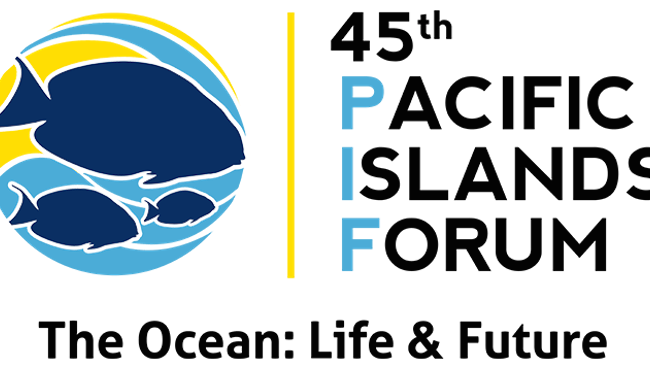
Plenty of opportunities for talk, but can we get some action, too?
The recently concluded Pacific Islands Forum meeting in Palau issued its standard communiqué, but one that included two important conclusions of the leaders—perhaps seemingly unrelated to the casual reader—that go to the heart of an increasing problem affecting government service delivery in the Pacific: many government workers are spending so much time in meetings, and traveling to and from them, that they have little time leftover to do the work of delivering services in their countries. The upward spiral of regional meetings is, frankly, astounding and one that is increasingly dominating the work schedule of people working throughout government.
Many government workers are off-island a third to half of the year for regional or international meetings. One might reasonably wonder how government employees mandated to implement, for example, health improvement or energy-related projects have time to do their work when they are traveling so often. A diplomat based in Fiji told me recently that the Forum Secretariat sponsors 60 meetings a year. Then there is the Secretariat of the Pacific Community, Secretariat of the Pacific Regional Environment Program, Forum Fisheries Agency, South Pacific Tourism Association and other so-called CROP agencies all have their list of meetings that require the attention of government officials. And this makes no mention of donor countries and institutions such as the Asian Development Bank, World Bank and International Monetary Fund, all of which host a variety of meetings requiring attendance of officials and leaders—or, and nearly as disruptive to the steady flow of routine government operations as off-shore trips by government employees, they send teams of officials on one-to-two-week visits to each island to document the fiscal status and ‘good governance’ policies of the country in question.
The concern about regional meetings, clearly, has risen to the attention of heads of state in the region because it made it into print in the communiqué from the meeting in Palau that ended earlier this month. The communiqué contains the directive ‘to rationalise ministerial meetings and endorsed the proposed changes to improve cost allocation, focus and time efficiency, and transparency and accountability of meetings…(and) requested all CROP organisations to consult with their governing bodies and non-member partners on participating in a comprehensive review of regional meetings.’
‘Frequent travel disrupts delivery of services to the public,’ I wrote in this space last year. If anything, it has gotten worse. Of course, travel isn’t the only disruptor of government services: corruption or lack of leadership, for example, undermine government services just as effectively as absent staff.
Nowadays, it seems, meetings are all about preparing for other meetings. The recent Oceania 21 leaders meeting in New Caledonia, for example, was seen by some leaders as a way to build momentum for the global Small Island Developing States (SIDS) summit in Samoa next month, which in turn is a stepping stone to UN Secretary General Ban Ki-moon’s one-day climate summit in mid-September before the opening of the General Assembly, which is being touted by island leaders as a key precursor to the global climate summit in 2015.
Further along in the Forum’s Palau communiqué is a paragraph that is seemingly unrelated to the meeting issue—but actually is.
An excerpt from the relevant paragraph reads: ‘Leaders expressed their serious concern for the extremely large number of Sustainable Development Goals (SDGs) and targets being discussed at the global level and called on the global community to strive for a more manageable, achievable and limited number of SDGs with clear and relevant targets.’ It went on encourage recognition of the ‘special case’ of SIDS and said issues ‘that have constrained the ability to achieve Millennium Development Goals (MDGs) in some countries’ need to be taken into consideration. This is not a small point, considering that 2015 is the target year for implementation of the MDGs, and only five of 14 countries in the Pacific are on track to implement a majority of the MDGs. Three, in fact, are off-track on all seven MDGs.
As the world moves into the ‘post-MDG’ period by adopting a shopping list of the new mantra known as ‘Sustainable Development Goals,’ will it end up simply creating a whole new era of meetings to review the implementation of a global ‘to-do’ punch list that would likely be beyond the capacity of many small islands anyway, but will certainly be if people needed to carry out the work are spending a good bit of time in places like Dubai, Bangkok, Suva, or New York at SDG review meetings?
Some years ago, Pacific island leaders signed onto the Pacific Plan. It was a catch-all document with nearly 40 priority areas. For the most part, this plan served as a vehicle for regional get-togethers and Forum Secretariat team visits to member countries to check (the usually little) progress in implementing specific Pacific Plan goals. The ‘good progress’ made toward regional cooperation under the Pacific Plan noted on the Forum Secretariat website could probably be put down almost entirely to meetings at which, no doubt, ‘regional cooperation’ was well displayed. A review of the plan completed earlier this year completely refocused the point of the document from a ‘plan’ to a ‘framework’ for regionalism. Unfortunately, this will probably result in countless new meetings to discuss regionalism when time could be more effectively spent supporting or initiating efforts within individual Forum nations to deliver on MDGs/SDGs such as improved health and education, access to water and sanitation, job creation, and other key quality of life indicators that, for increasingly large numbers of Pacific islanders, have been on a long, steady decline.

